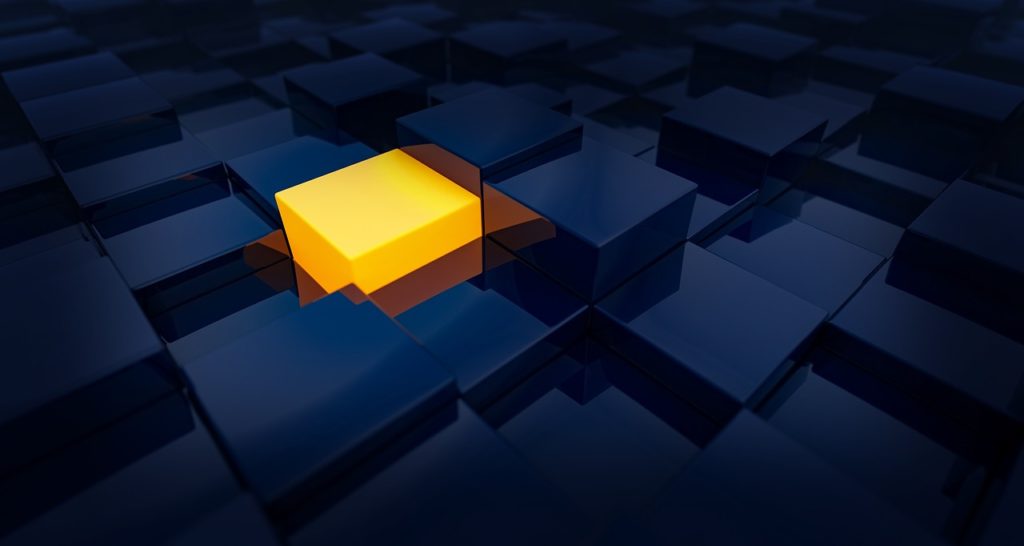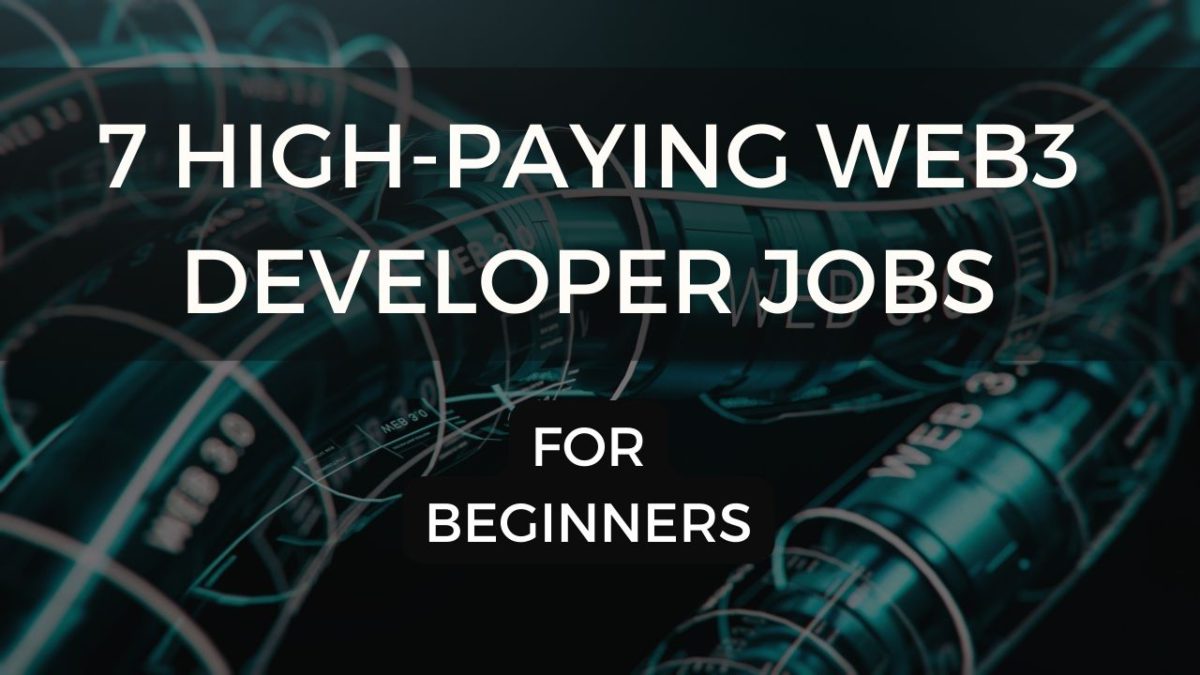Top 10 Blockchain Developer Jobs To Grab For in 2025
Hey there, tech enthusiasts! If you’re eyeing the future of blockchain, 2025 is shaping up to be a thrilling year for blockchain developer jobs. The demand for skilled developers is skyrocketing as more industries embrace blockchain technology. From finance to gaming, there’s a wide array of opportunities waiting for you. In this article, we’ll explore the top 10 blockchain developer jobs that you should keep an eye on. So, let’s dive in and see what’s in store for you!
Key Takeaways
- Blockchain developer jobs are booming across various sectors.
- Crypto banking software solutions offer exciting opportunities.
- White-label NFT marketplaces are gaining traction.
- Carbon credit marketplaces are emerging as a new trend.
- Smart contracts and dApp development are core skills in demand.
1. Crypto Banking Software Solution
Crypto banking software solutions are making waves in the financial world, offering a fresh way to handle digital assets. These solutions are transforming traditional banking by integrating blockchain technology, providing enhanced security and transparency.
Key Features of Crypto Banking Solutions
- Security: Built on blockchain, these systems provide robust security features, ensuring safe transactions.
- Transparency: All transactions are recorded on a public ledger, offering full transparency.
- Efficiency: They streamline processes, reducing the time and cost associated with traditional banking.
Benefits for Users
- Instant Transactions: Users can send and receive digital currencies quickly without the usual delays.
- Lower Fees: By cutting out intermediaries, crypto banking can lower transaction costs.
- Global Access: Users can access their accounts from anywhere, making it ideal for international transactions.
Crypto banking solutions are not just about holding digital currencies; they’re about redefining how we see financial transactions. As these systems evolve, they promise to bring more innovative features to the table, making them a compelling choice for the future.
In the ever-evolving blockchain space, platforms like BYDFi’s upgraded perpetual trading system are setting new standards, enhancing trading capabilities and offering users improved experiences. As crypto banking continues to grow, it will likely integrate with such advancements, further enriching the user experience.
2. White-Label NFT Marketplace Solution
In 2025, the demand for white-label NFT marketplace solutions is expected to skyrocket. These platforms offer businesses a chance to launch their own NFT marketplaces without the need to develop the underlying technology from scratch. This is particularly appealing for companies looking to enter the NFT space quickly and efficiently.
Benefits of White-Label NFT Marketplaces
- Cost-Effective: By using a pre-built solution, companies can significantly reduce development costs.
- Quick Deployment: Businesses can have their marketplace up and running in a fraction of the time it would take to develop a custom solution.
- Customizable: Despite being a ready-made product, these solutions offer customization options to tailor the marketplace to specific needs.
Key Features to Look For
When choosing a white-label NFT marketplace, consider the following features:
- User-Friendly Interface: Ensure the platform is easy to navigate for both buyers and sellers.
- Security Features: Look for robust security measures to protect transactions and user data.
- Scalability: Choose a solution that can grow with your business needs.
White-label NFT marketplaces are revolutionizing how businesses approach the digital asset market, making it accessible and manageable.
Making the Right Choice
To decide between a custom-built marketplace and a white-label solution, learn to select the ideal solution for your business by comparing both options. This decision will impact your entry speed and long-term success in the NFT market.
3. Carbon Credit Marketplace
The world is increasingly focused on reducing carbon footprints, and the carbon credit marketplace is becoming a vital part of this effort. Blockchain technology is set to revolutionize this space by ensuring transparency, security, and efficiency in trading carbon credits.
Why Blockchain?
- Immutable Records: Blockchain provides a secure and unchangeable ledger for carbon credit transactions, ensuring that every trade is transparent and traceable.
- Decentralization: This removes the need for central authorities, allowing for a more open and fair trading environment.
- Smart Contracts: Automate the verification and validation of carbon credits, reducing the risk of fraud and errors.
Opportunities in Carbon Credit Marketplaces
- Development of Platforms: Creating user-friendly platforms where companies can buy, sell, and trade carbon credits efficiently.
- Integration with IoT: Using IoT devices to accurately measure carbon emissions and automatically update blockchain records.
- Global Accessibility: Enabling access to carbon credit trading for businesses worldwide, regardless of size or location.
Blockchain is not just a buzzword in the carbon credit space; it’s a game-changer. With its ability to provide transparency and security, blockchain is poised to make carbon trading more accessible and efficient than ever before.
For those interested in the technical side of things, exploring the top blockchain development companies can provide insights into how these solutions are being built and implemented. These companies are at the forefront of offering blockchain development services, making them pivotal players in the carbon credit revolution.
4. Crypto Launchpad
So, you’re thinking about diving into the world of crypto launchpads, huh? Smart move. These platforms are popping up everywhere, helping new crypto projects get off the ground by connecting them with investors. Crypto launchpads are like the Kickstarter for blockchain projects, offering early access to tokens before they hit the mainstream.
Why Consider a Career in Crypto Launchpads?
- High Demand: With the crypto market expanding, there’s a growing need for platforms that can help new projects find their footing.
- Innovation Hub: It’s a space filled with innovation, where you can work on the cutting edge of technology.
- Networking Opportunities: Working in launchpads means you’ll connect with a lot of interesting folks in the crypto space, from developers to investors.
Key Skills Required
- Blockchain Knowledge: Understanding how blockchain technology works is crucial.
- Marketing Skills: You’ll need to know how to promote new projects effectively.
- Technical Skills: Being tech-savvy helps, especially if you’re working with smart contracts and tokenomics.
Getting into crypto launchpads might seem daunting, but with the right skills and a bit of perseverance, you can launch your Web3 career and secure high-paying crypto jobs within 90 days. It’s all about taking that first step and diving into the unknown.
What to Expect
- Dynamic Work Environment: Things move fast in the crypto world, so be prepared for a dynamic and ever-changing work environment.
- Opportunities for Growth: As you gain experience, there are plenty of opportunities to grow and take on more responsibility.
- Impactful Work: You’ll be helping new projects succeed, which can be incredibly rewarding.
5. Blockchain Development
Blockchain development is becoming a cornerstone in the tech industry. It’s not just about cryptocurrencies anymore; it’s about revolutionizing how we handle data and transactions across numerous sectors. From supply chains to digital identities, blockchain technology is reshaping how businesses operate.
Key Areas of Focus
- Decentralized Finance (DeFi): Offering financial services without traditional banks.
- Digital IDs and Medical Data: Secure and private data sharing.
- Supply Chain Management: Enhanced tracking and efficiency.
Top Programming Languages for Blockchain
When diving into blockchain development, choosing the right programming language is crucial. Here are some top contenders:
- Solidity: Dominates the Ethereum platform, making it a must-learn for dApp developers.
- JavaScript: Widely used due to its versatility and ease of use.
- Python: Known for its simplicity and readability, making it accessible for newcomers.
Considerations for Developers
- Platform Independence: Opt for languages that support multiple platforms to save time and resources.
- Ease of Learning: Choose languages with a gentle learning curve to attract more developers.
- Scalability and Performance: Ensure the language supports scalable solutions to handle growing data loads.
The world of blockchain is vast and ever-evolving. For those looking to make a mark, understanding these fundamentals is key to unlocking a future full of possibilities.
Blockchain development is not just a job; it’s a journey into the future of technology. Whether you’re developing blockchain technology solutions or exploring new applications, there’s a place for everyone in this dynamic field.
6. dApp Development
DApp development is where creativity meets technology. These decentralized applications run on a blockchain network rather than a single computer, offering a new way to create apps that are secure, transparent, and resistant to censorship.
Why focus on dApp development? It’s simple: dApps are the future. They eliminate intermediaries, reduce costs, and enhance security. With the rise of blockchain, the demand for skilled dApp developers is skyrocketing.
Key Considerations for dApp Developers
- Choose the Right Blockchain: Selecting the appropriate blockchain platform is crucial. Ethereum, Binance Smart Chain, and Polkadot are popular choices.
- Understand Smart Contracts: Smart contracts are the backbone of dApps. They automate processes and ensure transactions are executed as programmed.
- User Experience Matters: Even though dApps are complex, they should be user-friendly. A seamless interface can make or break a dApp’s success.
Developing dApps is more than just coding; it’s about crafting solutions that can change industries. With blockchain, you’re not just building apps—you’re building the future.
For those looking to dive into the world of blockchain development, understanding the integration of AI and blockchain is becoming increasingly important. This blend opens up diverse career opportunities in this rapidly evolving field.
As we approach 2025, the skills in dApp development are not just nice to have—they’re essential for anyone looking to make a mark in the tech industry.
7. Smart Contracts
Smart contracts are basically self-executing contracts with the terms of the agreement directly written into code. These contracts run on blockchain networks, like Ethereum, and automatically enforce and execute terms without the need for intermediaries.
Key Features of Smart Contracts
- Automation: Once set up, smart contracts automatically execute actions when certain conditions are met. This removes the need for third-party involvement, making transactions faster and more efficient.
- Transparency: Since smart contracts are stored on a blockchain, all parties can view the contract terms and execution history, ensuring transparency and trust.
- Security: The use of blockchain technology provides a secure environment for smart contracts, reducing the risk of fraud or manipulation.
Popular Programming Languages for Smart Contracts
- Solidity: This language is specifically designed for smart contract development on the Ethereum blockchain. Its syntax is similar to JavaScript, making it accessible for many developers.
- Move: Originally developed for the Diem blockchain, Move is gaining traction due to its focus on security and reliability. It’s being used in projects like Sui and Aptos.
- Java: Known for its versatility, Java is also used in smart contract development, offering robust tools for creating secure and efficient contracts.
Smart contracts are revolutionizing the way agreements are made and executed, providing a reliable and efficient alternative to traditional methods. As blockchain technology continues to evolve, the role of smart contracts in various industries is expected to expand significantly.
For those looking to hire top talent in this field, top blockchain development companies like CGS-team and Markovate are leading the way with their expertise in smart contracts and other blockchain technologies.
8. DEX Development
Decentralized Exchange (DEX) development is one of the most exciting areas in the blockchain space. As more people seek control over their assets without intermediaries, DEXs are becoming increasingly popular. Developers who specialize in building these platforms are in high demand.
Why is DEX Development Important?
- User Control: Users maintain control over their assets, reducing the risk of hacks that centralized exchanges face.
- Privacy: Transactions on DEXs are often more private, as they don’t require personal information.
- Global Access: Anyone with an internet connection can access a DEX, making it a truly global solution.
Key Features of DEXs
- Liquidity Pools: These are essential for facilitating trades without the need for a traditional order book. They allow users to earn rewards by providing liquidity.
- Automated Market Makers (AMMs): These algorithms set the price of assets automatically, ensuring continuous trading.
- Cross-Chain Functionality: As the blockchain ecosystem grows, the ability to trade assets across different blockchains becomes crucial.
Developing a DEX requires a deep understanding of blockchain technology, smart contracts, and security protocols. It’s a challenging yet rewarding field that offers vast opportunities for innovation.
In 2025, the demand for top remote Crypto Trading job opportunities is expected to grow, with DEX development leading the charge. With the right skills, developers can significantly impact how digital assets are traded globally.
9. NEAR Protocol Development
NEAR Protocol has been gaining traction as a powerful player in the blockchain space. It’s built on a sharded architecture and uses a Proof-of-Stake (PoS) consensus mechanism. This makes it both scalable and energy-efficient, which is a big deal in today’s eco-conscious world.
Why should you consider NEAR Protocol development? Here are a few compelling reasons:
- Scalability: With its sharded design, NEAR can handle a large number of transactions simultaneously, making it ideal for applications that need to scale quickly.
- Developer-Friendly: The platform offers robust tools and documentation, making it easier for developers to build and deploy applications.
- Interoperability: NEAR is designed to work seamlessly with other blockchains, which is crucial for the interconnected future of blockchain technology.
Key Benefits of NEAR Protocol
- Low Transaction Fees: Compared to many other blockchains, NEAR offers significantly lower transaction costs, which can be a major advantage for both developers and users.
- Community-Driven: The NEAR ecosystem is supported by a vibrant community, providing plenty of resources and support for developers.
- Security: Utilizing a PoS mechanism, NEAR ensures secure and trustless transactions.
NEAR Protocol is not just about building applications; it’s about creating an ecosystem where developers can thrive and innovate without the usual constraints.
For those looking to dive into blockchain development, NEAR Protocol Development offers a promising avenue. Its emphasis on scalability, low fees, and developer support makes it a top choice for 2025 and beyond.
10. Cryptocurrency Development
Cryptocurrency development is one of the most exciting and dynamic areas in the blockchain field. Building a new cryptocurrency involves creating a digital asset that can be used for various transactions and applications. This process is not just about coding; it requires a deep understanding of economics, cryptography, and network security.
Key Steps in Cryptocurrency Development
- Define the Purpose: Before starting, it’s crucial to understand what problem your cryptocurrency aims to solve. Is it meant to facilitate microtransactions, offer privacy, or perhaps enable decentralized finance?
- Choose a Consensus Mechanism: Decide on the consensus algorithm, like Proof of Work (PoW) or Proof of Stake (PoS), which will determine how transactions are verified and added to the blockchain.
- Design the Blockchain Architecture: This includes deciding whether your cryptocurrency will run on its own blockchain or use an existing one like Ethereum.
- Develop the Nodes: Nodes are the backbone of your blockchain, handling transaction verification and network security.
- Integrate APIs: APIs are essential for connecting your cryptocurrency to other applications and services.
- Create a Wallet: Users need a secure and user-friendly wallet to store and manage their cryptocurrency.
- Test and Deploy: Thorough testing is crucial to ensure the security and functionality of your cryptocurrency before launch.
Cryptocurrency development is not just about creating a digital coin; it’s about crafting a secure, efficient, and scalable solution that meets specific user needs. As the world continues to embrace digital currencies, the demand for skilled cryptocurrency developers is expected to rise.
For those interested in entering this field, Cryptocurrency Jobs offers a curated selection of top blockchain job opportunities at prominent companies and startups utilizing blockchain technology. This is a great place to start your journey in cryptocurrency development.
Conclusion
So, there you have it, a peek into the future of blockchain developer jobs in 2025. It’s clear that the demand for skilled developers in this field is only going to grow. With blockchain technology spreading its roots across various industries, from finance to healthcare, the opportunities are vast and varied. Whether you’re just starting out or looking to make a career switch, now’s the time to dive into this exciting world. The skills you build today could be the foundation for a rewarding career tomorrow. Keep learning, stay curious, and who knows? You might just land one of those top jobs we’ve talked about. Good luck on your journey!
Frequently Asked Questions
What is blockchain technology?
Blockchain is a digital ledger that records transactions across many computers. It’s known for its security and transparency.
Why are blockchain jobs in demand?
As more industries use blockchain for secure and transparent transactions, the need for skilled developers grows.
What skills do blockchain developers need?
Blockchain developers should know programming languages like Solidity and JavaScript, and understand smart contracts and dApps.
How can I start a career in blockchain development?
Begin by learning popular blockchain programming languages and building projects to gain experience. Online courses can help.
What is a smart contract?
A smart contract is a self-executing contract with terms written into code, running on blockchain networks like Ethereum.
How does blockchain improve security?
Blockchain’s decentralized nature makes it hard to alter data, enhancing security and reducing fraud risks.
Stay informed with daily updates from Blockchain Magazine on Google News. Click here to follow us and mark as favorite: [Blockchain Magazine on Google News].
Get Blockchain Insights In Inbox
Stay ahead of the curve with expert analysis and market updates.
latest from tech
Disclaimer: Any post shared by a third-party agency are sponsored and Blockchain Magazine has no views on any such posts. The views and opinions expressed in this post are those of the clients and do not necessarily reflect the official policy or position of Blockchain Magazine. The information provided in this post is for informational purposes only and should not be considered as financial, investment, or professional advice. Blockchain Magazine does not endorse or promote any specific products, services, or companies mentioned in this posts. Readers are encouraged to conduct their own research and consult with a qualified professional before making any financial decisions. The featured image used is just a creative depiction of the title and it does not intend to hurt sentiments of any person or institution. If it hurts anyone sentiments, please do not hesitate to reach out to Blockchain Magazine.

 Bitcoin
Bitcoin  Ethereum
Ethereum  XRP
XRP  Tether
Tether  Solana
Solana  USDC
USDC  Dogecoin
Dogecoin  Cardano
Cardano  Lido Staked Ether
Lido Staked Ether  TRON
TRON  Wrapped Bitcoin
Wrapped Bitcoin  Wrapped stETH
Wrapped stETH  Chainlink
Chainlink  Avalanche
Avalanche  Sui
Sui  Stellar
Stellar  Litecoin
Litecoin  Toncoin
Toncoin  Shiba Inu
Shiba Inu  LEO Token
LEO Token  Hedera
Hedera  MANTRA
MANTRA  USDS
USDS  Hyperliquid
Hyperliquid  WETH
WETH  Polkadot
Polkadot  Bitcoin Cash
Bitcoin Cash  Bitget Token
Bitget Token  Ethena USDe
Ethena USDe  Wrapped eETH
Wrapped eETH  Uniswap
Uniswap  Monero
Monero  NEAR Protocol
NEAR Protocol  Pepe
Pepe  WhiteBIT Coin
WhiteBIT Coin  Aave
Aave  Bittensor
Bittensor  Ondo
Ondo  Aptos
Aptos  Internet Computer
Internet Computer  Dai
Dai  Official Trump
Official Trump  Ethereum Classic
Ethereum Classic  Mantle
Mantle  Tokenize Xchange
Tokenize Xchange  OKB
OKB  Gate
Gate  sUSDS
sUSDS  Coinbase Wrapped BTC
Coinbase Wrapped BTC 






